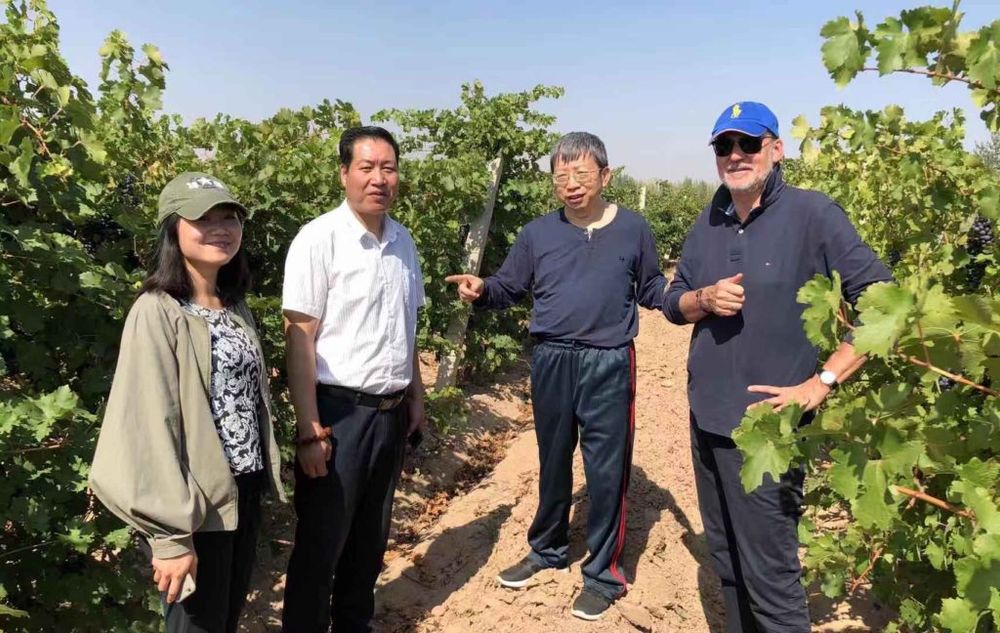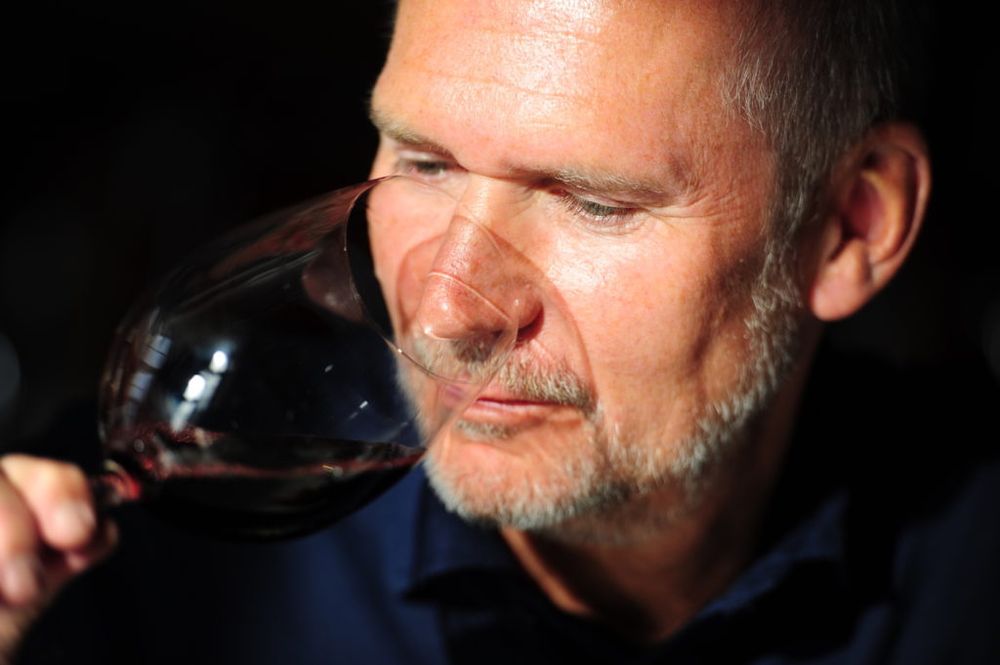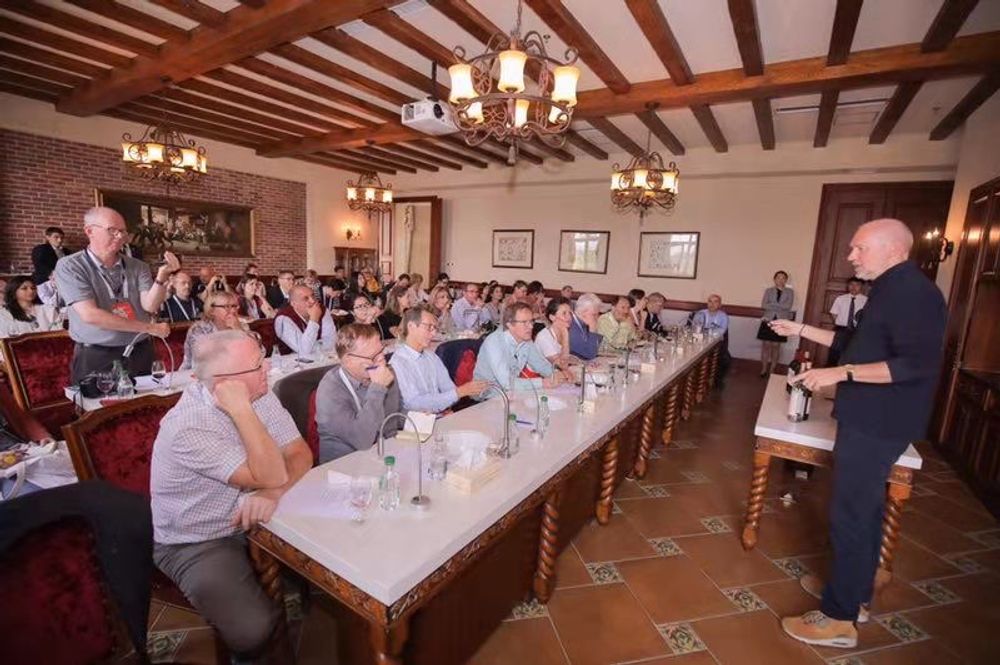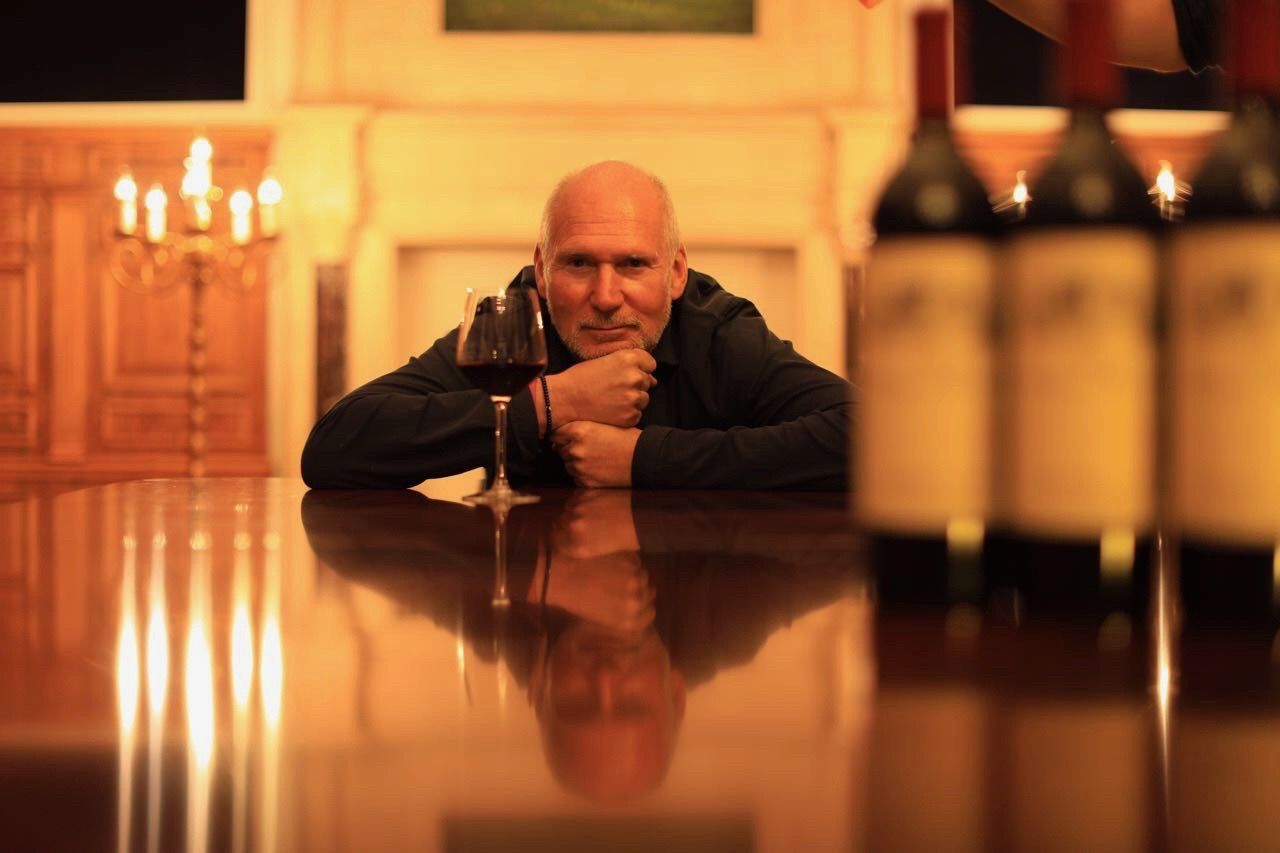Has the slowdown in China’s economy had an impact on business perhaps? “No, zero. We’re niche, and when you’re operating in a niche, you create your own cycles,” Moser says.
When I caught up with Lenz Moser in Yinchuan he had just flown in for the start of harvest at Changyu Moser XV, the project he has developed with China’s largest producer in the key winemaking region of Ningxia.
Affable and charming, he radiates enthusiasm for life in general (getting married three weeks earlier to a woman 17 years his junior may have something to do with this), and for his Chinese wines in particular.
Newly-wed Moser beams when I ask him about this major life event: “Yes, I’m proudly married, she’s coming out tomorrow for a week. She’s from a marketing background, we share the same ideas about branding, strategy – and life.”
Which wines were served at the wedding? “Oh, I’m pretty boring, I always do the same thing. Of course I had some of our wines, the Changyu Moser barrel-aged white Cabernet, and the inevitable Opus One” (he spent nine years with Robert Mondavi as General Manager Europe and often quotes “Bob” as a major influence).

“(The new wine) I believe is the future of Ningxia. I tried to bring out the bright fruit of Ningxia Cabernet, in a very subtle form, lighter in alcohol…to bring out the typicity of the region.”
The imminent harvest is another reason to be cheerful, apparently. Talking about the 2019 vintage he says: “I believe in vineyards and the perfect grape. I saw the grapes yesterday. They’re such fresh, super-healthy berries, I could have cried, I was so happy!”
Four years into his partnership with Changyu (2015 was his first vintage here), it’s obvious that Moser is in a good place: “The first year I got here, I would tell journalists about our vision and it was just pie in the sky. Now I can show them what we’ve really done.”
Indeed, the previous day he had presented his range to a group of international wine judges in Yinchuan as part of the Asian Wine & Spirits Conference and competition, and the reaction was overwhelmingly positive.
Moser is a man on a mission to make top quality Cabernet from China. For someone who defines himself as a marketing man, he has a predictably strategic approach and is justifiably proud of what has been achieved to date.
“First, it’s about gaining recognition from opinion leaders and journalists – and finally the consumer, but we’re far from that point – so they understand who we are, what we’re doing. Our mission is very simple. We want to be amongst the very best of China, and to belong in the company of the world’s finest.
We’ve built the brand architecture, created a distribution network of 40 countries including 25 European markets, and we’ve launched in China. We’ve got good ratings – that was a goal set by Changyu – and our white Cabernet is the most successful Chinese wine ever: no wine from China ever got three major gold medals in Europe.”

Moser admits that the launch strategy in the UK was flawed
Moser’s forward-thinking attitude shines through. He goes on retreats twice a year where he reads, fasts and abstains from alcohol (his last book was Simon Sharma’s The Five O’Clock Club), and he waxes lyrical about team building and the merits of women in the wine sector (he recently recruited thirty-something Chinese woman Emma Yu as assistant winemaker and is convinced that “women are different in terms of wine making and appreciation.”)
Has the slowdown in China’s economy had an impact on business perhaps? “No, zero. We’re niche, and when you’re operating in a niche, you create your own cycles.”

Since taking over four years ago Moser has worked tirelessly to get quality Chinese wine onto the world map
We chat about the UK, where Changyu Moser currently has around 100 smaller customers including key on-trade names such as Sexy Fish, China Tang, Dinner by Heston, The Ivy and 67 Pall Mall. Moser enthuses about the market (“it’s the shop window of the world, it’s really important to us”) but admits that the launch strategy there was flawed.
“Our first listing was Tesco which gave us instantly 60,000 – 70,000 bottles in the first two years. But we’re not a supermarket brand, we only produce 600,000 bottles altogether, so we said let’s take a step back.
We’re going to the independent sector now, particularly the on-trade. The volumes are about half what we did initially but I feel much more comfortable. It’s a much better business model for long term brand building, and that approach has been adopted across Europe in every country we’re in.”
We touch on the ethics of winemaking and the steps that Changyu Moser is considering to make their products more eco-friendly (replacing tin capsules by a thin paper strip across the cork, using lighter glass bottles).
Moser reveals: “We’re going to launch my new icon wine in March 2020. It’ll be €150 a bottle. It’s a big secret but I’m telling people about it because it exists, it’s been bottled. Everyone uses wooden boxes for their expensive wines, but export regulations mean we’d have to flame it. So I thought, a cardboard box is lighter, better for the environment.
It’s a wine which I believe is the future of Ningxia. It’s very harmonious, more fruit-driven than anything else. I tried to bring out the bright fruit of Ningxia Cabernet, in a very subtle form, lighter in alcohol. It’ll be the 2016 vintage. I’ve worked very hard on it, reduced the wood treatment to bring out the typicity of the region.
It’s a bit of a risk because when you taste it against our Grand Vin which is a real blockbuster, this new wine is not big. It’s an elegant, bright, shiny Cabernet Sauvignon in a very smooth form packed with fruit, but less vanilla, less wood, less tannic. There’ll only be 6000 bottles. We’re going to launch it in Marrakech at La Mamounia, the World’s Best Hotel 2018 – the best hotel in the world, for the best Chinese wine.”
We chat about the label (“I’ve been working on it for almost five years, a calligrapher wrote four characters for me, they’ll be the centre piece”) but he declines to reveal the name, saying only “you’ll laugh when you see it.”
Life appears to be too short for 63 year-old Moser, who cites Bob Mondavi (“just f*ucking do it”) and John F. Kennedy’s “we refuse to postpone” (in reference to going to the moon) as inspiration.
“When you get older you realise that there’s an end to things. The older I get, the more I refuse to postpone things, that’s why I work more than I’ve ever done before. If you get the chance to put China on the map, you should take it and give it all you have.”
And with that, he leaves to go join his winemaking team in the vineyards and discuss picking dates.
































